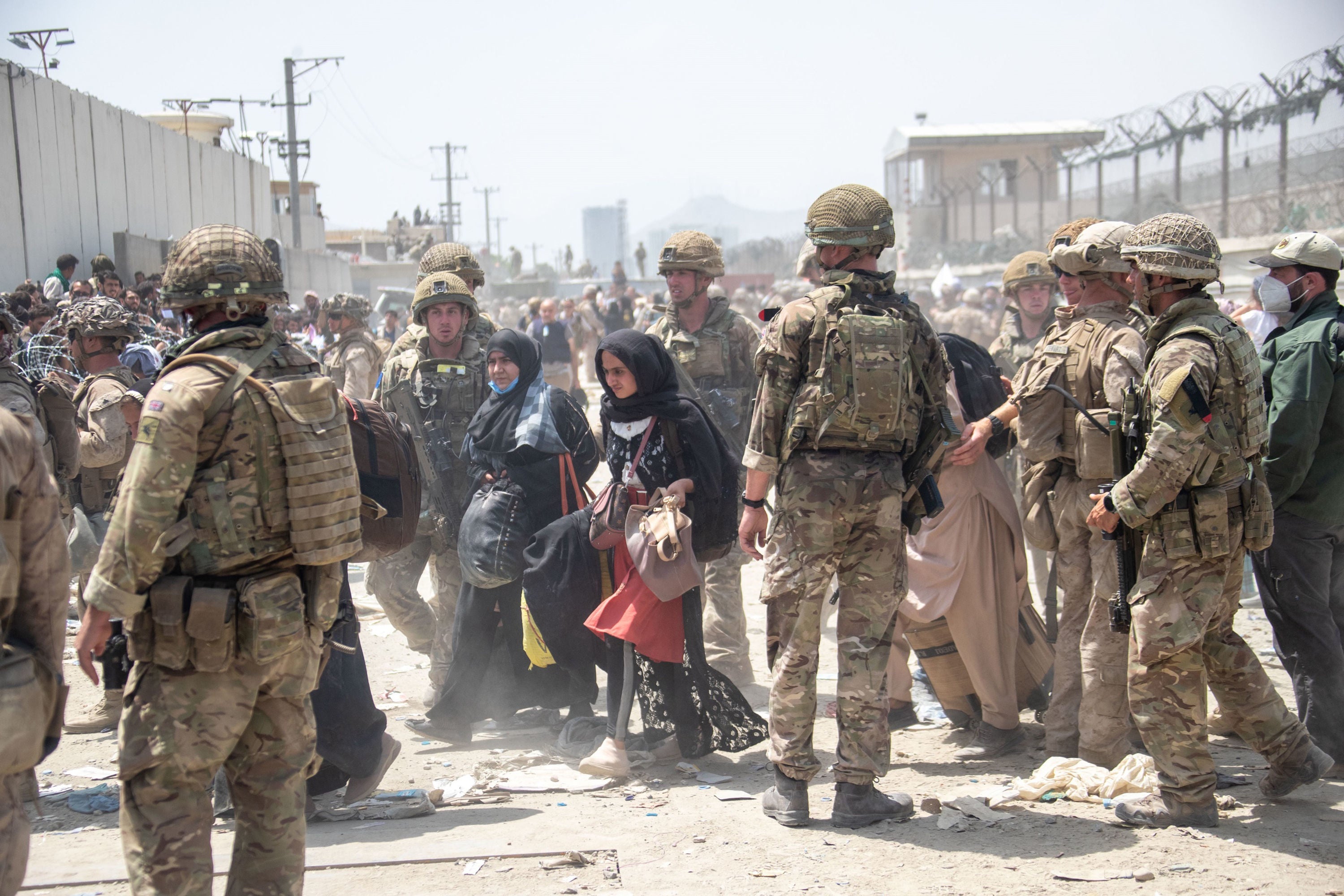Foreign Office chief says it has ‘lessons to learn’ from Afghan evacuation
Sir Philip Barton said he should not have stayed on holiday last summer as Kabul fell to the Taliban.

Your support helps us to tell the story
From reproductive rights to climate change to Big Tech, The Independent is on the ground when the story is developing. Whether it's investigating the financials of Elon Musk's pro-Trump PAC or producing our latest documentary, 'The A Word', which shines a light on the American women fighting for reproductive rights, we know how important it is to parse out the facts from the messaging.
At such a critical moment in US history, we need reporters on the ground. Your donation allows us to keep sending journalists to speak to both sides of the story.
The Independent is trusted by Americans across the entire political spectrum. And unlike many other quality news outlets, we choose not to lock Americans out of our reporting and analysis with paywalls. We believe quality journalism should be available to everyone, paid for by those who can afford it.
Your support makes all the difference.The Foreign Office has “lessons to learn” over the chaotic evacuation from Afghanistan following the withdrawal last year of international forces, the head of the department has said.
Sir Philip Barton, the permanent under secretary, again expressed his regret that he did not return from leave as Kabul fell to the Taliban after a scathing report by MPs called on him to consider his position.
The Commons Foreign Affairs Committee said Afghan allies and British troops had been let down by “deep failures of leadership” as Sir Philip and the then foreign secretary Dominic Raab both remained on holiday.
Giving evidence to the House of Lords International Relations Committee, Sir Philip said: “If I had my time again I would have come back from my leave earlier. That is what I should have done.”
He said that crisis following the fall of the Afghan capital to the Taliban last August had been “one of the most complex and challenging” the department had ever faced.
“We did manage to evacuate 15,000 people against an original planning assumption of six. That is more than any other country apart from the US. All of us wish we could have evacuated more people,” he said.
Sir Philip said that once the immediate crisis phase was over, he had put in place a “proper exercise” to establish what lessons could be learned which had led to a series of changes within the department.
“We did embed those in the way in which we approached the invasion of Ukraine in February,” he said.
In its report, published last month, the Foreign Affairs Committee said there had a “total absence of a plan” for Afghans who supported the British mission, despite knowing for 18 months that the evacuations may be necessary if the US withdrew its troops.
Sir Philip acknowledged the speed of the collapse of the western-backed Afghan government had come as surprise, but insisted planning had been under way for a possible military airlift since the start of the year.
“No-one, including the Taliban themselves, foresaw to speed at which that happened,” he said.
“Our main effort in the first half of last year was trying to avoid a Taliban takeover. In parallel we did work up our contingency plans including… planning with the MoD (Ministry of Defence) for a military evacuation.”
Earlier, shadow foreign secretary David Lammy flew in to Afghanistan to highlight the worsening humanitarian “catastrophe” with millions of people facing starvation.
Mr Lammy and shadow international development minister Preet Gill, who is travelling with him, are thought to be the first UK politicians to visit the country since the return of the Taliban.
Labour said the trip was facilitated by the United Nations Office for the Co-ordination of Humanitarian Affairs and that there would not be any meetings with Taliban officials or representatives.
Mr Lammy said the scramble to leave last year had damaged the UK’s reputation and he called on the Government to set out a “comprehensive strategy” to alleviate the ensuing humanitarian crisis.
“The Government downgraded the UK’s international reputation and made the whole world less safe with its calamitous handling of the withdrawal from Afghanistan last summer,” he said.
“Today, millions of Afghanistan’s civilians are suffering from starvation, with some even forced to sell body parts to feed their families.
“The UK Government’s woeful lack of leadership that was so visible last year is continuing as it ignores the humanitarian catastrophe.”